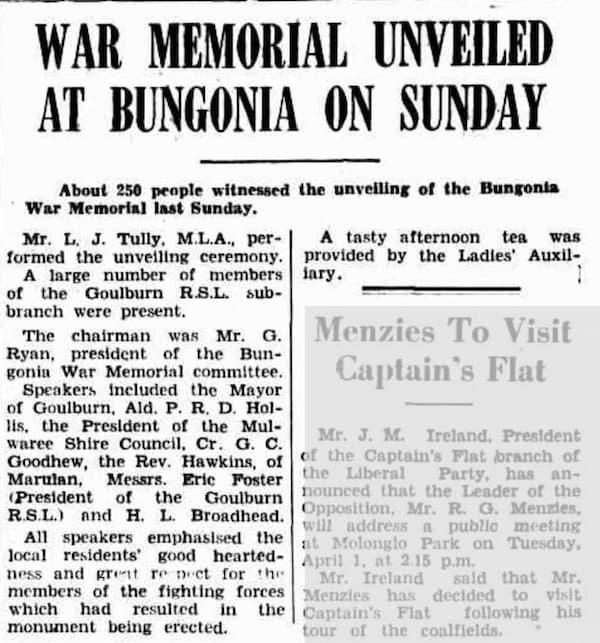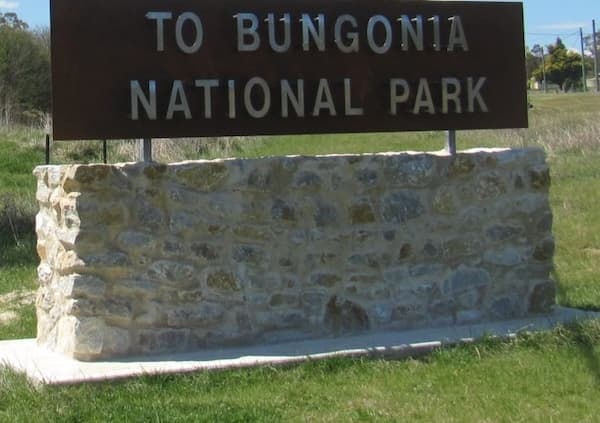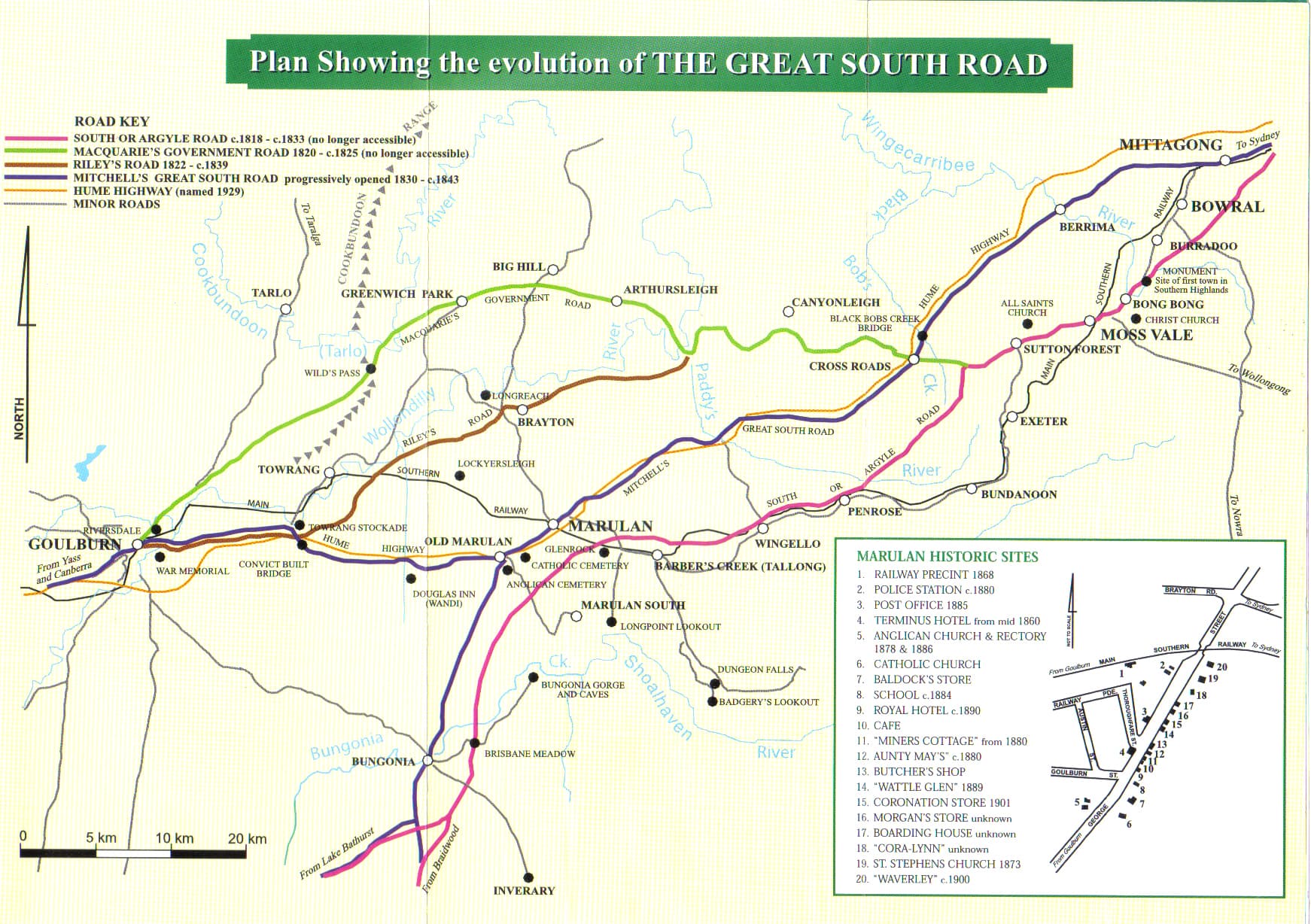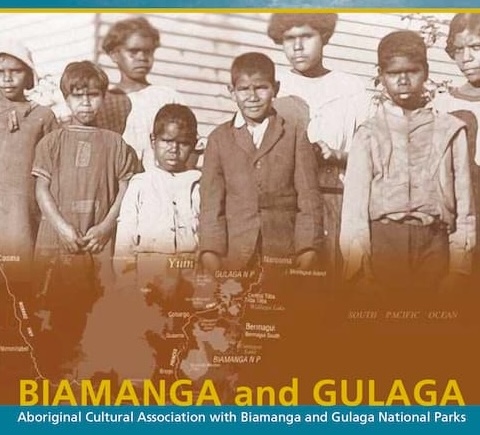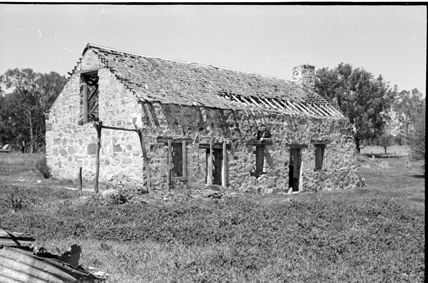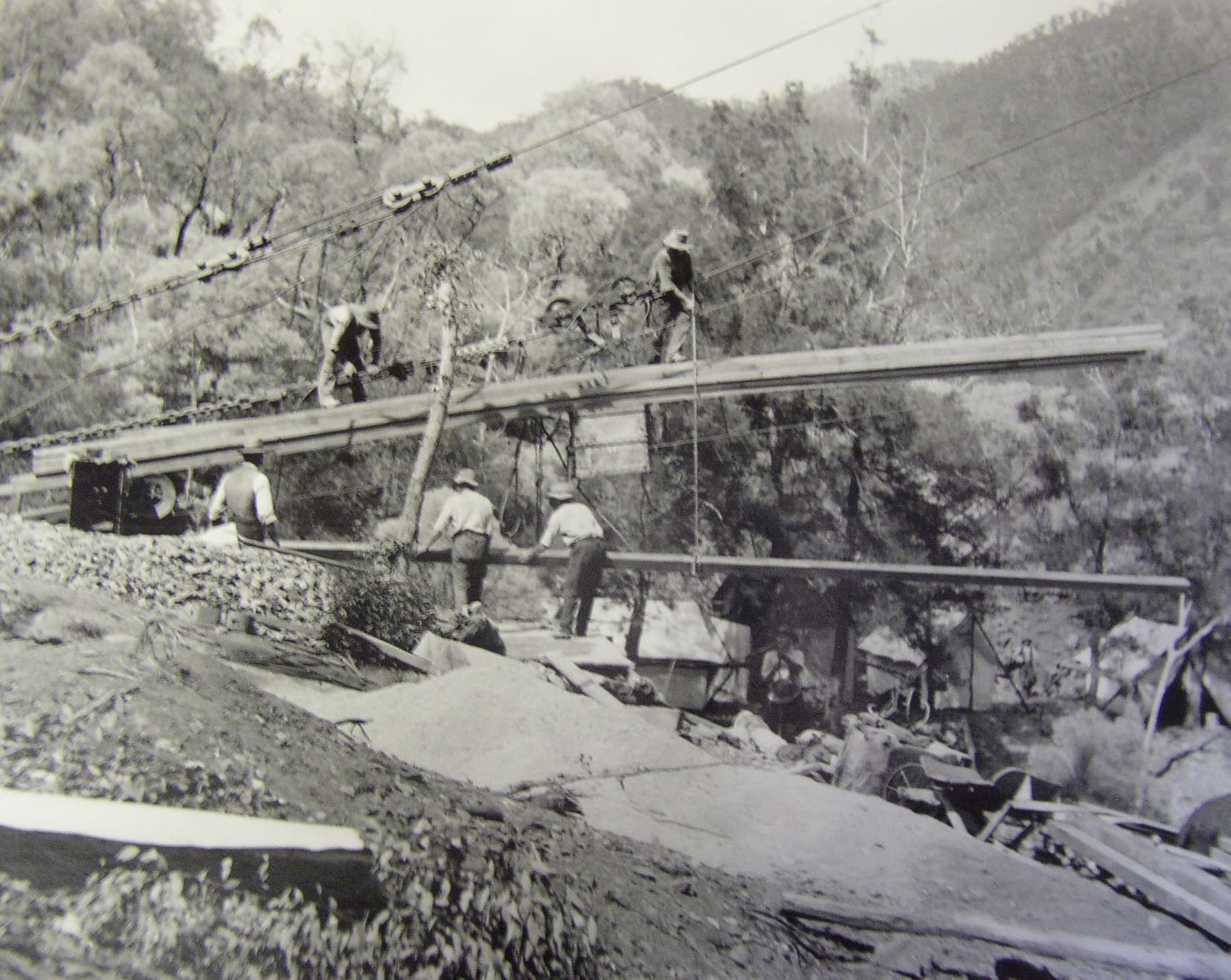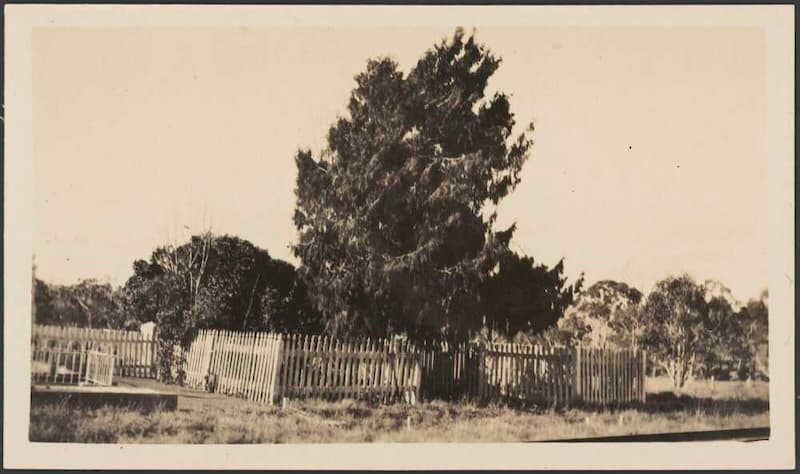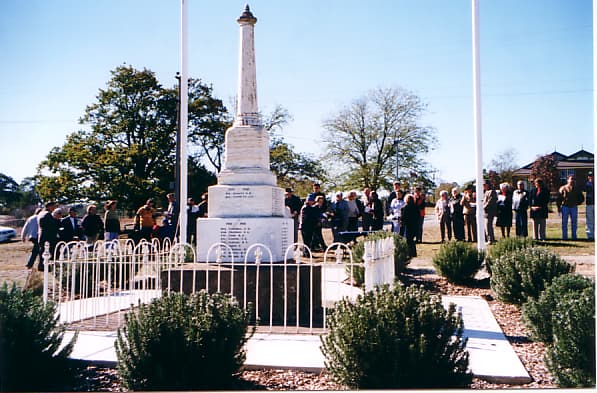The people and places that made Bungonia what it is today
- Home
- War Memorials
An Introduction To The Bungonia War Memorials
The Bungonia War Memorials have been created as a small but significant dedication to the military personnel – both men and women - who have lost their lives as they have fought overseas to ensure our freedom.
Looking for Bungonia Specific History Archives? They are held in Goulburn Workspace by courtesy of Goulburn Mulwaree Council. Please use our contact form to arrange supervised access. You cannot do it through the council or the library.
There is no cause to ever celebrate a war but historically, it has needlessly been the only path to freedom for a country. This was never truer in the first and second World Wars and more specifically the Gallipoli Campaign.
The linked pages send us on the journey to the work that has been undertaken by the Bungonia Historical Society and others, to preserve the memory and honour of those who have lost their lives and contributed to the way we can live today.
Gallipoli
Why does that name cause us such great sadness yet pride?
Gallipoli is a paradox, a tragedy where 8,700 Australian men were killed and 19,000 wounded, all for absolutely no strategic gain or territory. We were the aggressors; invading Turkey, and we were defeated.
Yet, on April 25, ANZAC Day and over 100 years later, we gather to honour and remember the ANZACS and all who died or suffered in war.
In the case of Gallipoli, over 33,000 Allied and 86,000 Turkish troops died in the eight month campaign, which achieved none of its objectives. And a British royal commission later concluded that the operation had been ill-conceived. Large numbers of the dead have no known grave.
We recall the words of Kemal Ataturk on the inscription on the Gallipoli Memorial erected by Turkey in 1934 and on the Ataturk Memorial at Tarakina Bay, Wellington, New Zealand:
"Those heroes who shed their blood and lost their lives, you are now lying in the soil of a friendly country. Therefore, rest in peace. There is no difference between the Johnnies and the Mehmets to us where they lie side by side in this country of ours. You, the mothers who sent their sons from far away countries wipe away your tears, your sons are now lying in our bosom and are in peace. After having lost their lives on this land they become our sons as well."
Follow this link to discover the names of our local personnel who were killed at Gallipoli and the community’s efforts to create a space that will honour them for ever.
The Bungonia War Memorial
On the 27th March 1949, the Bungonia War Memorial was dedicated, where it still stands today.
The memorial honours the lives of those who were killed in the following conflicts:
- South African War (Boer War), 1899 – _1902
- First World War, 1914 – _1918
- Second World War, 1939 – _1945
The Bungonia War Memorial was the first memorial erected in the Goulburn district after WW2. It is a substantial monument comprising incised lead lettering on a series of white marble plinths, topped by a simple but elegant column and surrounded by a low cast metal fence of traditional style.
Follow this link to read more about the memorials, those whose lives are celebrated and the work being undertaken to conserve it.
